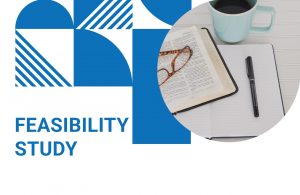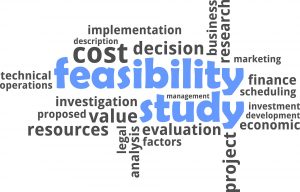
The growth and recognition of project management training have changed dramatically over the past few years.
These developments are projected to continue and spread, and with the rise of project management comes the requirement for a feasibility assessment.
The importance of feasibility study is unmatched, as it investigates the likelihood of adverse outcomes to ascertain whether or not they are acceptable.
A thorough feasibility assessment can differentiate between genuine economic prospects and investments that are at risk of being unsuccessful.
What is meant by “feasibility study”?
A feasibility analysis is used to assess the viability of an idea, such as verifying that a project is legally and technically possible and economically reasonable.
As the name suggests, a feasibility analysis is used to determine the viability of an idea.
It tells us whether a project is worth the investment, and in other situations, it may tell us that a project is not doable.
This may result from several factors, one of which is the requirement of an excessive number of resources.
This not only prevents those resources from performing other tasks, but it also may cost more than an organization would earn back by taking on a project that is not profitable.
A well-designed study should offer a historical background of the business or project, such as a description of the product or service, accounting statements, details of operations and management; and that reflects the importance of the feasibility study.
Elements of marketing research and policies, financial data, legal requirements, and tax obligations.
In most cases, this type of study comes before developing the technical aspects of the project.
The importance of feasibility study
The goal of an organization to “get it right” before devoting resources, time, or budget lends a significant amount of weight to the importance of conducting a feasibility study.
An investigation into a project’s practicability may turn up novel concepts that have the potential to alter its parameters radically.
It is in everyone’s best interest to make these decisions in advance rather than dive headfirst into the project only to find out that it won’t be successful.
It is always in the project’s best interest to carry out a feasibility study because doing so provides you and the other stakeholders with a clear image of the proposed project.
The following are some of the essential advantages of carrying out a feasibility study:
- Boosts the concentration of project teams
- Identifies brand new window of opportunity
- Provides vital information for a “go/no-go” decision
- Reduces the number of available commercial options
- Provides a sound justification for going through with the project.
- Increases the likelihood of success by analyzing many different parameters
- Helps with making decisions on the project
- Identifies the many reasons why we should not proceed.
Further benefits of feasibility study
In addition to the methods of conducting a feasibility study that was discussed earlier, specific projects also need to have other limitations assessed, such as:
- Internal Project Restrictions: Technical, Technological, Financial, Resource, and so on.
- Internal Limitations of the Corporation These include Financial, Marketing, and Export Restrictions, among others.
- External restraints can include things like logistics, the environment, laws, and regulations, among other things.
Conducting a Project Feasibility Study
Various companies who understand the importance of feasibility study in UAE use the following steps:
Preliminary Analysis:
Many businesses may undertake a preliminary analysis, which is akin to a pre-screening of the project, before moving further with the time-consuming procedure of a feasibility study.
The goal of the preliminary analysis is to identify insurmountable impediments that would render a feasibility study ineffective.
If no substantial hurdles are detected after this pre-screening, a fuller feasibility study will be done.
Establish the scope:
It’s vital to define the project’s scope so that the feasibility study’s scope may be decided.
The scope of the project will also take into consideration its impact on internal stakeholders as well as external clients or customers.
It is vital to assess the project’s potential influence on various areas of the firm.
Market research:
There is no such thing as a project that is undertaken in a vacuum.
Those completing the feasibility study will look at the present competitive landscape to see if the proposal has a place in it.
Financial analysis:
The project’s feasibility study will look at the project’s economic costs, such as equipment or other resources, man-hours, the project’s expected benefits.
The break-even date, financial risks, and, most significantly, the financial impact of the project’s failure.
Roadblocks and alternative solutions:
If any potential barriers develop during the study, it will investigate possibilities to assure the project’s success.
Results re-evaluation:
It’s vital to take a fresh look at the feasibility study, especially if a substantial period of time has passed after it was completed.
The Final decision:
Whether the project should proceed or not—is the final phase of a feasibility study.
Why choosing Truth UAE?
Your idea for a business might be turned into a project by doing a feasibility study.
It helps study new initiatives, assess their progress, and predict the details and the outcomes.
When a new project is being developed, there is a great deal of ambiguity regarding how it will begin and come to a conclusion.
When a feasibility study is carried out, the potential for financial loss is reduced, a sound plan for the project is developed.
The process of putting the plan into action is streamlined and simplified, and it becomes possible to more easily monitor and maintain the project’s quality.
Our team honors the importance of feasibility study. So, when it comes to any risk or a bit of worry to take a step.
We also provide the ability to predict your earnings and know in advance your legal and technical requirements and procedures for the development of projects and businesses, allowing for a smoother process overall.
Post a comment إلغاء الرد
Related Posts
importance of feasibility study in project management
Feasibility study is a process of a certain analysis including, Market, Technical, Financial and…
How to Perform Comprehensive Feasibility Study
Are you sick of being an employee and hoping one day you would start your…
The Simplest Way to Establish a Joint Stock Company
When you think of powerful companies, sole proprietorships and partnerships typically aren’t the first thing…
The Best Merger and Acquisition Consultant in UAE
Mergers and acquisitions are essential components of the strategic management of every company.The goal is…





